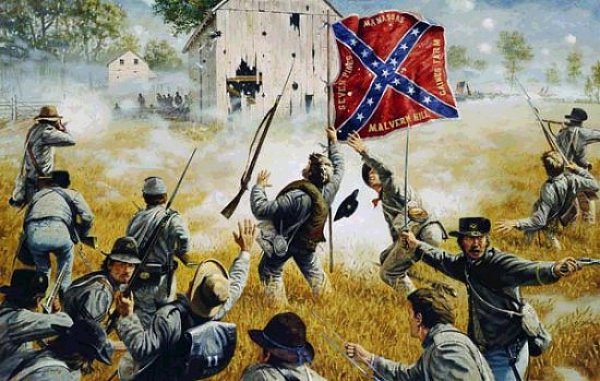For centuries the Scottish Highlanders, existing under a clan system, were apt to “revolt” against English rule. “Revolt” is the term the British used. In actuality, what the Scots were doing was “resisting” British rule, but when a government is determined to inflict control and subjugate a people, as the British were, any “resistance” to that is seen by the imposing government as “revolutionary”. This stems of course from the ancient belief that governments, rather than individuals, are sovereign, and therefore not to be “resisted”.
The Scottish Clan system was at odds with English rule and its penchant for English dominated central authority, especially in the area of religion. When Bonnie Prince Charlie was defeated by the Brits at the Battle of Culloden in 1745, the English Crown, in an effort to prevent future resistance, sought to break up the Clan system by establishing the Act of Proscription. The Dress Act of 1746 was a part of that Act and outlawed the wearing of kilts, tartans and other forms of “Highland Dress”.
The aim was to strip the Highlanders of their heritage as well as the sectional pride and identity that was central to their culture. In other words if you defeat the culture and heritage of a people, after a time they will forget who they are and be more easily persuaded to fall into line with the will of the national authority.
A few years ago my Aunt gave me the scrapbook that she put together in Grammar School in 1961 commemorating the Centennial of the War for Southern Independence. In it was a newspaper, and I was shocked to see ads of major retailers in the city I grew up in proudly displaying the Confederate Battle Flag. Throughout the paper, each and every advertiser was displaying Southern pride and celebrating the honor, bravery and nobility of the Confederate soldier. Those days are gone.
Today, school bands are forbidden from playing Dixie at football games, Southern children can no longer display the flag that their ancestors fought under on their clothing, and educational facilities all over the South are being renamed to erase every vestige of pride in Confederate heroes.
The University of Mississippi, for example, has deep roots in the South in general, and in Confederate history in particular. When the South was invaded in 1861, the entire student body of the University enlisted in the Confederate Army and formed a Company in the 11th Mississippi Infantry Regiment called “The University Grays”. At the close of the war, only one of these men was left alive as the Company suffered a nearly 100% casualty rate in the defense of their State and the South. Shouldn’t this be remembered and even honored? Not according to the powers that be who have banned Confederate Flags at ball games, changed the University’s mascot from “Col Reb” to a bear, and most recently are calling for a renaming of Confederate Drive on the School’s Campus as well as distancing themselves from the term “Ol’ Miss” on the grounds that some may find these things offensive.
By now you’ve heard that at Washington and Lee University in Virginia six students have undertaken to have the Flags removed from the University’s Chapel. But these are just two of the latest developments in the efforts by the perpetually offended to sanitize history. These situations are hardly unique and are just two among myriad examples of attempts to erase Southern culture from public view. Such efforts are ongoing, systematic and ingrained into virtually every aspect of the non-culture that is being inflicted on us from the highest levels of academia.
Pick up your child’s textbook sometime and read the account that it gives of American history. From the earliest settlement right up to the modern era, Southern influence on the founding and development of America is, at best, down-played and at worst centered around the most negative examples that can be dredged up. The latter examples are never taught in a complete form, nor are they placed within the historical context in which they belong. What is bad must be brought to center stage and what is good must be erased until the end message, even if just subliminal, is that “Southerners are inherently wretched”.
While good, honest, decent and Christian men like Robert E. Lee and Stonewall Jackson are known to the average Southerner today only for their supposed “fight to protect slavery”, Yankee radicals and leftists such as Emerson and terrorists such as John Brown will be hailed as brilliant forward thinkers who were ahead of their time and fighting for the rights and equality of all people. The Flags and symbols of Forrest, Stuart, Polk and the men who served under them must be buried and removed from society, while the villainous, thuggish and murderous rampages of Sherman and Sheridan will be celebrated as “necessary to save the union.” When “reconstruction” is taught in school, it will focus on the Klan with no mention of the lawless Union Leagues or the militant, anarchic actions of a government imposed occupation that prompted the Klan’s existence.
As with the Clans of Scotland in relation to the English Crown, the Southern tradition poses a threat to the communally ordered, government dominated and nationalistic society of the new Puritans. It stands in opposition to their designs for how we should live, worship, educate and raise our families. The efforts to eradicate our heritage are essentially a milder, more subliminal form of ethnic cleansing, but the end result is philosophically the same. Karl Marx wrote that “a people without a heritage are easily persuaded.” It is happening here.







